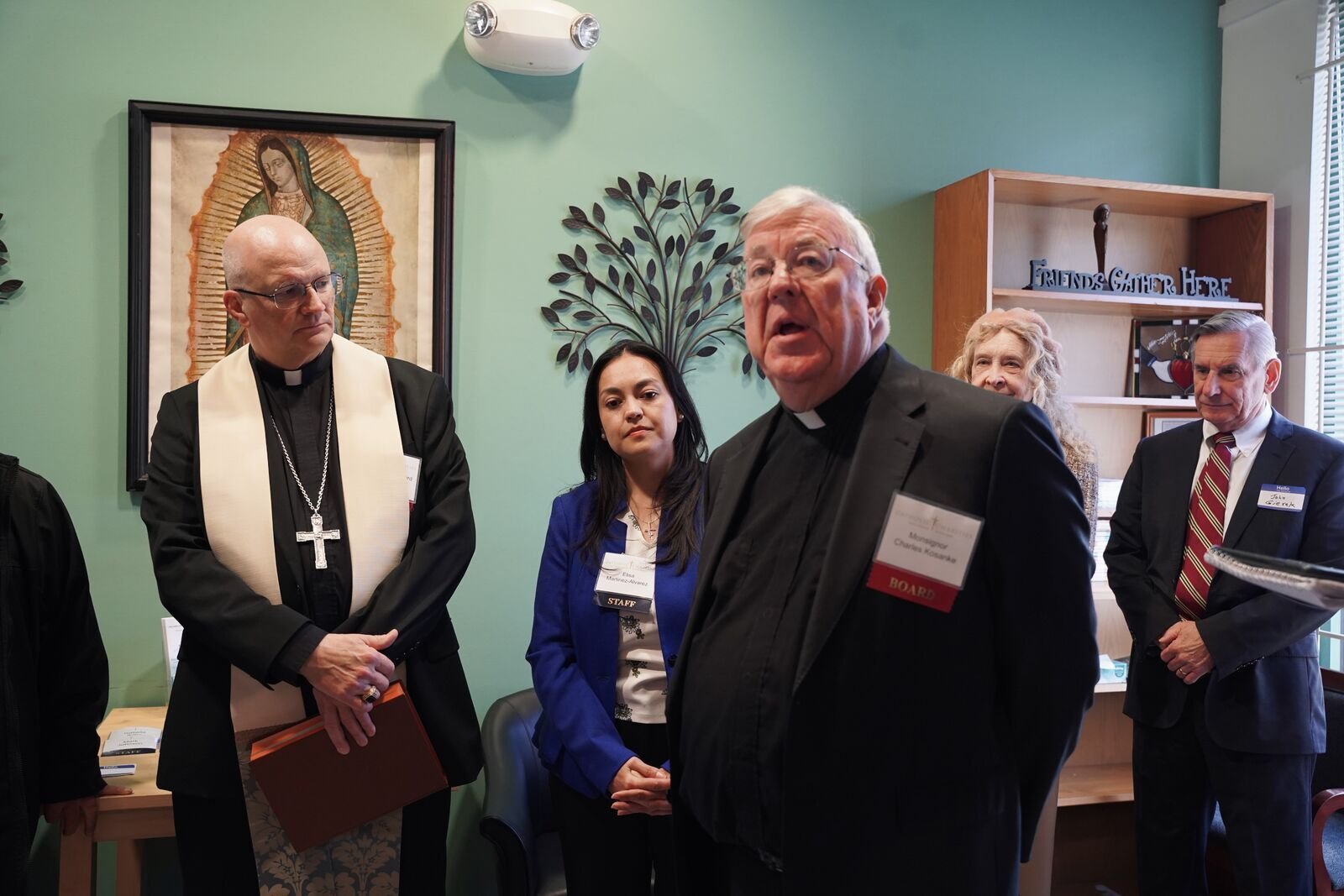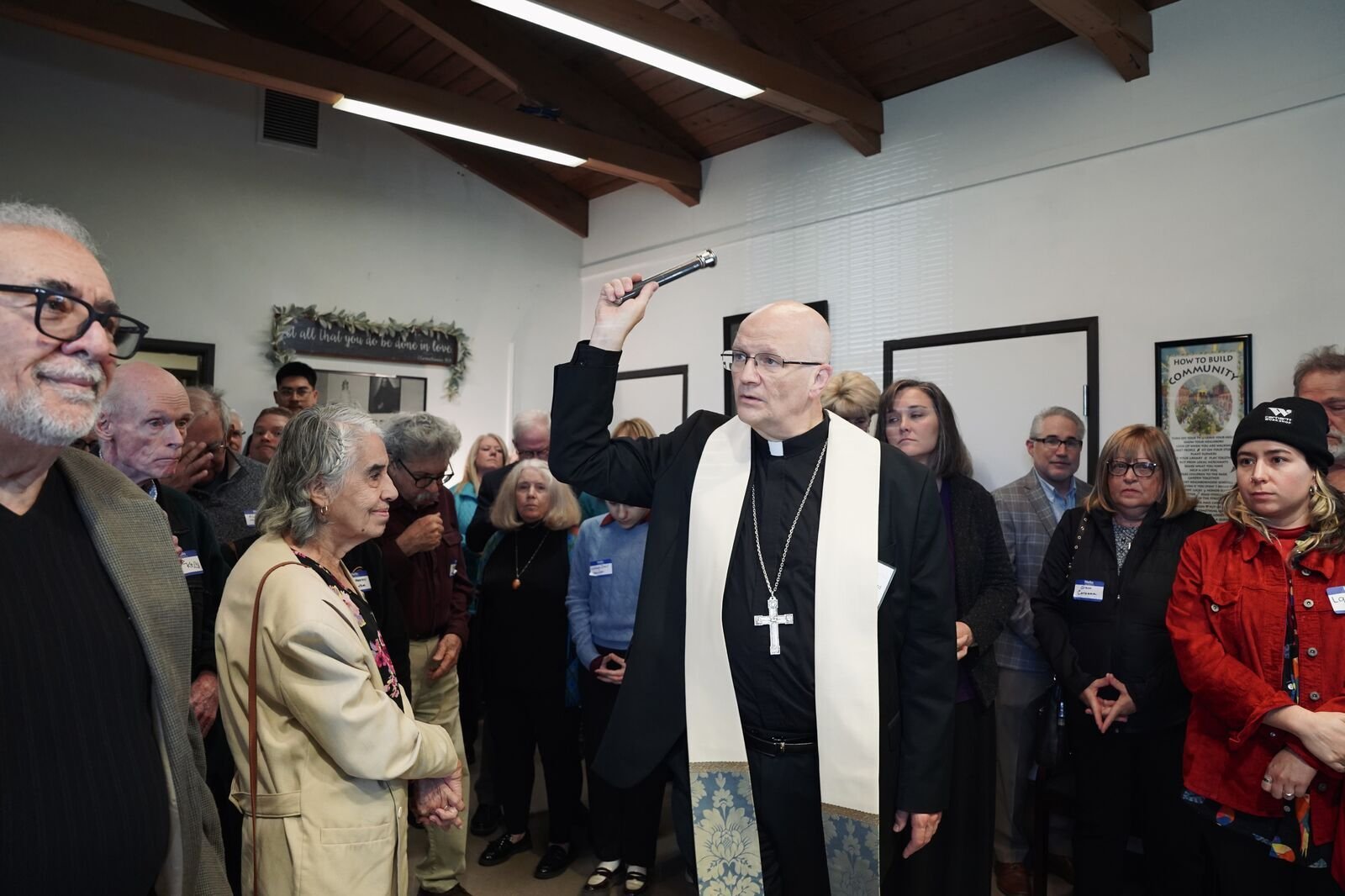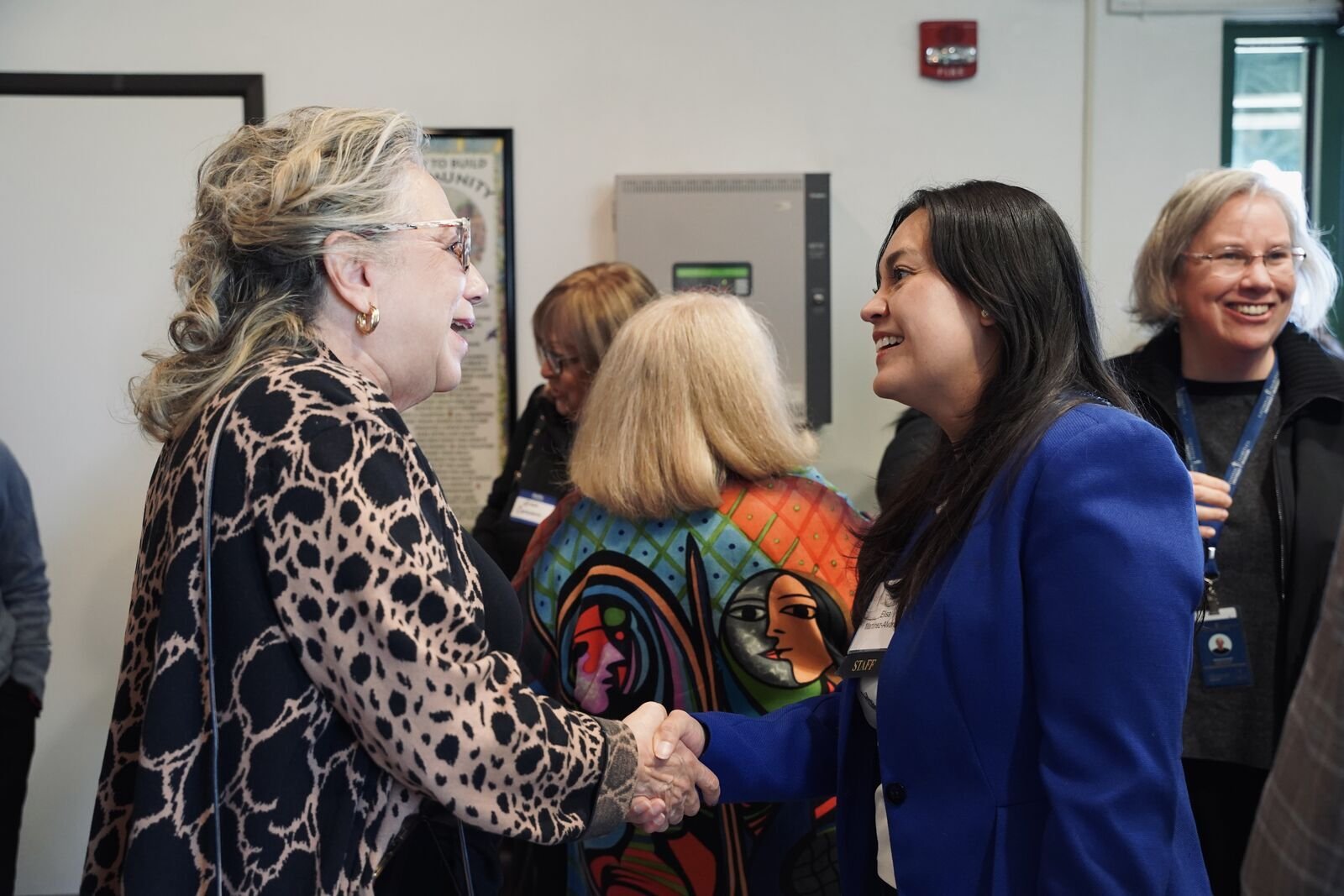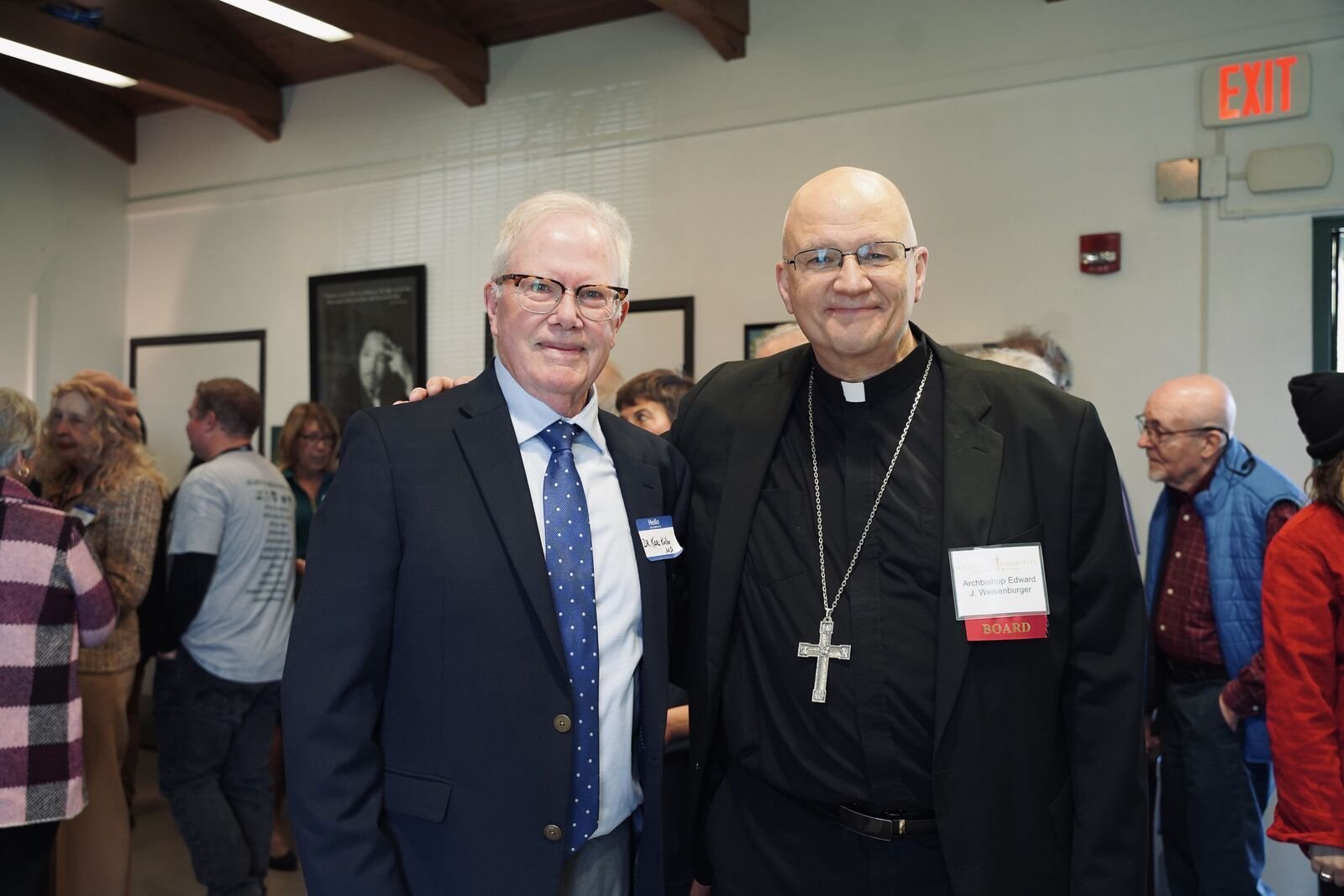The free clinic, started by Msgr. Clement Kern in 1950, is now under the care of Catholic Charities of Southeast Michigan
DETROIT — For 75 years, the St. Frances Cabrini Clinic has been carrying out Msgr. Clement Kern’s vision of a place where Detroit’s poor and vulnerable could find medical care.
On Oct. 27, the Cabrini Clinic — now under the administrative care of Catholic Charities of Southeast Michigan — celebrated 75 years on the campus of Most Holy Trinity Parish in the city’s Corktown neighborhood with a rededication and blessing from Detroit Archbishop Edward J. Weisenburger.
Msgr. Charles Kosanke, pastor of Most Holy Trinity Parish and chairman of the board of trustees at Catholic Charities of Southeast Michigan, welcomed the archbishop along with volunteers, guests and partners who have contributed to the Cabrini Clinic’s longevity.
Don't miss another story
Did you know you can get Detroit Catholic's latest articles delivered to your inbox? It's easy and free to sign up!
Msgr. Kern, affectionately known as Detroit’s “labor priest,” wanted to create a free clinic for the city’s poor and immigrant communities, and set out to do just that, Msgr. Kosanke said.
“In 1946, Msgr. Kern noticed that a lot of people, especially immigrants, did not have access to health care,” Msgr. Kosanke said. “Now, keep in mind that Medicaid did not come in until 1965, so this was almost 20 years before that. There were no safety nets. It wasn’t easy, because once you start dealing with medicine, even then, there were some regulations to deal with. But he opened up the clinic in 1950.”
The Cabrini Clinic initially operated out of Most Holy Trinity's school building before moving into the parish's former convent in 2008.
For decades, the clinic operated as a ministry of Most Holy Trinity Parish, until Msgr. Kosanke arrived in April 2016 and established it as an independent 501c3 with its own advisory board and a partnership with Trinity Health to help manage the clinic.

An endowment fund was created to cover operational costs of the clinic, which relies on volunteer health care providers to see patients. Earlier this month, an agreement was reached with Catholic Charities of Southeast Michigan, which will handle the administrative side of the clinic going forward, Msgr. Kosanke added.
While the Corktown neighborhood has seen development and growth in recent years, and today's social safety net is more robust than it was when Msgr. Kern first established the clinic, the need in the community remains strong, he said.
“Corktown has changed a lot, especially in the last seven years, but the clinic is still needed, and we’re trying to develop plans to expand it," Msgr. Kosanke said. "Despite the Social Security Act and Medicaid, there are still a lot of people who are homeless and migrants, and others are uninsured, so they come here.”
Archbishop Weisenburger blessed the clinic after an impromptu visit to Most Holy Trinity School, thanking Cabrini Clinic staff and volunteers for their work in serving those most in need.

“I love the sacramental life of the Church,” Archbishop Weisenburger said. “I love the celebration of the Eucharist, the prayer life, and the adoration of the Blessed Sacrament. I love all of those pieties. But what deeply warms my heart is the reason those pieties exist, which is to care for Christ found most beautifully in the poor.
“So nothing brings me greater joy in our Church than when I see us come together with people of all religions, faith or no faith, but together we do the very works of God, however you may understand them,” Archbishop Weisenburger added. “So to each of you who is part of this holy place, I hope you know the abundant blessing of having served Christ.”
Elisa Alvarez, director of the Cabrini Clinic, gave Archbishop Weisenburger a tour of the facility, explaining the work the clinic does and the community it serves.
Alvarez, who previously served at Catholic Charities’ La Casa Amiga Legal Clinic and Communities Program in Pontiac, said clients can expect the same or greater services now that the Cabrini Clinic is under Catholic Charities of Southeast Michigan's umbrella.

“Our physicians provide physical and mental health services, and we have social workers to provide people in need with services and resources,” Alvarez said. “(Catholic Charities) also has a Project Hope program that works with moms in need, and we help them from the pregnancy until the child is one year old, following their progress and taking care of the mother and the child.”
The Cabrini Clinic will continue to provide free family and internal medicine to clients in need, thanks to the efforts of volunteer physicians and nurses, Alvarez said.
“It's all volunteering, from the doctors, nurses, pharmacists and assistants; it’s all their amazing work,” Alvarez said. “Most of our clients are migrants or people who are homeless, along with people who don’t have insurance. People come to Cabrini Clinic because they feel they can’t go anywhere else — and we’re here to help them.”
Alvarez said the Cabrini Clinic hopes to incorporate maternal care as it works to expand services, including updated technology.

“People won’t see many changes when they come to Cabrini Clinic; we want to have Catholic Charities be in the background and the primary caregivers and volunteers that people see,” Alvarez said. “I hope we can expand our services for more people, but we have generous support and a plan to be a model for other free clinics across the country.”
Paul Propson, CEO of Catholic Charities of Southeast Michigan, said the hope is to position the clinic to build upon its 75-year history of providing care for people in need.
“We are here to do whatever the volunteers cannot do themselves, from paying the bills to identifying Elisa as the leader of the clinic, who is a terrific social worker and professional who is going to be doing fundraising on Cabrini Clinic’s behalf and recruiting and managing volunteers to make sure they are the most effective in providing care,” Propson said.
“I think Cabrini Clinic’s best days are ahead of it,” Propson said. “We've seen an increase in uninsured and underinsured individuals who are in need of care, and there’s no shortage of Catholic and other medical professionals who want to care for the needs of their neighbors. This is a place where we can do that.”
Copy Permalink
Social justice












